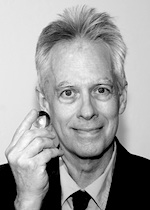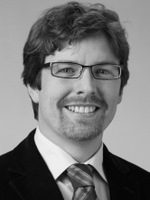 |
Stephen LaBerge, Ph.D pioneered the scientific study of lucid dreaming. His groundbreaking research at Stanford University demonstrated the validity of lucid dreaming to the scientific world, and his best-selling books Lucid Dreaming, Exploring the World of Lucid Dreaming, and Lucid Dreaming: A Concise Guide have introduced hundreds of thousands to the experience. In the past 30 years Dr. LaBerge has presented lectures, workshops and training programs on lucid dreaming and consciousness around the world. He is a dynamic speaker, known for his humor and ability to stimulate thought and to make scientific concepts relevant to the individual. To read what participants in Dr. LaBerge's programs have said, see: testimonials. Dr. LaBerge has extensive personal experience with lucid dreaming, having trained himself to have lucid dreams at will, and among his thousands of lucid dreams many have been delightful, inspiring, enlightening, and life-changing. He has dedicated his life's work to bringing this transformative experience to as many individuals as possible. |
 |
Tim Post is Founder of Snoozon (Netherlands). As a skilled lucid dreamer and educational psychologist, Tim teaches on the topic of lucid dreaming in Europe. He first learned about lucid dreaming as a teenager, using Stephen LaBerge's inspiring book Exploring the World of Lucid Dreaming to learn how to have lucid dreams himself. Tim has had thousands of lucid dreams, used the state to gain profound lucid dream experiences, and developed a deep understanding of how to apply the underlying principles of lucid dreaming to everyday life. During university college, Tim organized an academic multi-disciplinary group of students with a common interest to create a complete and reliable online resource on the topic of lucid dreaming. This project led to the launch of Lucidipedia: nurturing an active online community of lucid dreamers who share their learning experiences daily, through the use of message boards, online lucid dream journals, and interactive video webinars. At Snoozon, Tim organizes professional lucid dream workshops and home study courses that enable students to pursue psychological development and enhance their lives through the power of lucid dreaming. He has trained countless individuals in Europe, ranging from regular groups of men and women, university students, business professionals, to inmates at federal prisons and the physically impaired. |
 |
Daniel Erlacher, Ph.D is Docent for exercise science at the University of Bern (Switzerland). His interest in lucid dreaming started 15 years ago, when as a student he asked himself if it is possible to rehearse motor skills within a lucid dream and if this might enhance perfomance during wakefulness. To find an answer he visited in 1999 and 2003 Dr. LaBerge's sleep laboratory at Stanford University to learn the basics of lucid dream research. During his internship he recorded more than 40 lucid dreams and was encouraged to continue his studies back in Germany. For his doctoral thesis, he conducted several related studies. One for example showed that squats performed within a lucid dream were accompanied by measurable increases of heart rate and respiration rate. In another experiment he showed that lucid dream practice of tossing coins into a cup enhanced waking performance the next morning. In 2005 he finished his doctoral studies with his thesis "motor learning in lucid dreams". This work was honored by several prizes including the young investigator award of the German Society of Sport Science and the Ruprecht-Karls-prize from Heidelberg University. In his post doc studies Dr. Erlacher investigated several aspects about sleep and sport, e.g. the memory consolidation function of sleep, but followed always his passion for lucid dream research. Because Dr. Erlacher is a less skilled lucid dreamer he conducted several studies on lucid dream induction techniques with promising results for the Sleep Interruption Technique ("Wake-up-Back-to-Bed") first described by Dr. LaBerge. He authored more than 20 scientific research papers, presented his results at dozens of conferences and wrote a book in German, Anleitung zum Klarträume ("A guide to lucid dreaming"). He hosts a web site called klartraum.de. Klartraum is, of course, the German word for "lucid dream". |

PROGRAM : PRESENTERS : INFORMATION : REGISTER
Last modified 01-Mar-12